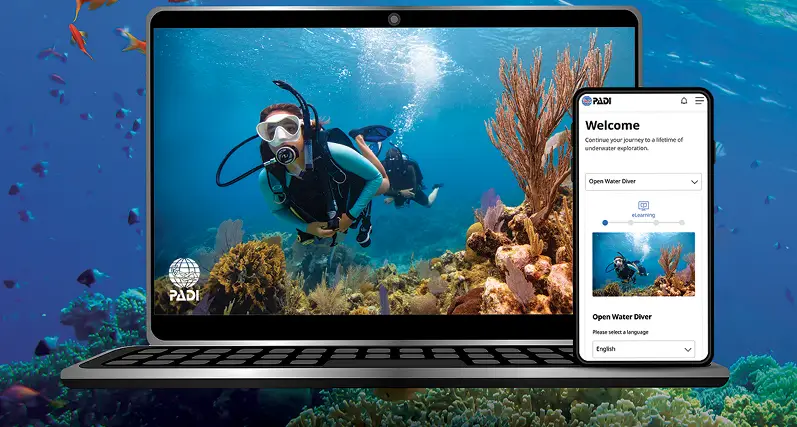
Scuba diving is an unforgettable underwater adventure that combines exploration, relaxation, and a close encounter with marine life. Whether you’re drawn to the peace and quiet of the deep, the weightless feeling of floating, or the vibrant underwater scenery, scuba diving has something special to offer everyone. Curious where to begin? Let’s walk through the key steps for getting started.
Before committing to a certification course, it’s a great idea to take a trial dive, often called a Discover Scuba Diving experience. This includes a short safety briefing and a guided underwater dive with a certified instructor.
If possible, try it in warm, clear waters where colorful corals and tropical fish enhance the experience. However, you can also do this at a local dive center. Just visit a nearby scuba club, meet the instructors, and see how comfortable you feel. Major training systems like PADI, SSI, and SDI all offer introductory dive options, and at this stage, the choice of agency isn’t critical.
Loved your first dive? The next step is to enroll in a scuba diving certification course. Most open water diver courses follow a similar structure, combining three main elements:
You can complete the first two sections at home, and then finish your certification in open water while on vacation. Many agencies offer a Referral Program that allows you to start training locally and complete it at a destination dive center.
When choosing a course, consider what matters most to you:
As you gain confidence, you’ll want to invest in your own scuba equipment. Start with the essentials:
These items need to fit well, so it’s better to have your own rather than rent. Hygiene and comfort also play a big role. Your instructor can help you try different types of fins and masks to find the perfect fit.
Once you’re diving more regularly, consider adding more advanced gear like:
Rental gear like tanks and weights is usually included when diving with a center, so you can acquire the rest over time.
After certification, it’s time to explore! Ask your local dive club about group trips or check out online forums for recommendations. Shore dives are ideal for gaining experience, while liveaboards (dive safaris) offer more advanced diving but usually require an Advanced Open Water certification.
Look for trustworthy dive centers at your chosen destination, and read recent reviews from other divers to ensure a safe and enjoyable experience.
Dive insurance is essential for safety. Scuba diving involves risks such as decompression sickness (DCS), which may require costly hyperbaric chamber treatment. A dedicated dive insurance policy will cover these expenses and more.
Make sure to choose an insurer that specializes in scuba diving coverage, not just general extreme sports, and verify that all underwater risks are included in the policy.
Scuba diving opens up a whole new world. It’s a mix of adventure, personal discovery, and connection with nature. By starting with a trial dive, getting certified, and investing wisely in equipment and safety, you’ll be ready to explore the oceans confidently and safely.

UNDERWATER PORTAL IBEST.ONE
The portal about the best spots for scuba diving, spearfishing, freediving, and underwater photography.
© All Rights Reserved - Underwater Portal - Ibest.one - Best Diving Spots, Freediving & Spearfishing